O.K., good! You composted. You threw a bunch of stuff in a pile and it appears to have turned into something other than leaves and food scraps. It looks ... composty. But how do you know if your compost is really ready to use in the garden? By testing it. Here's how ...
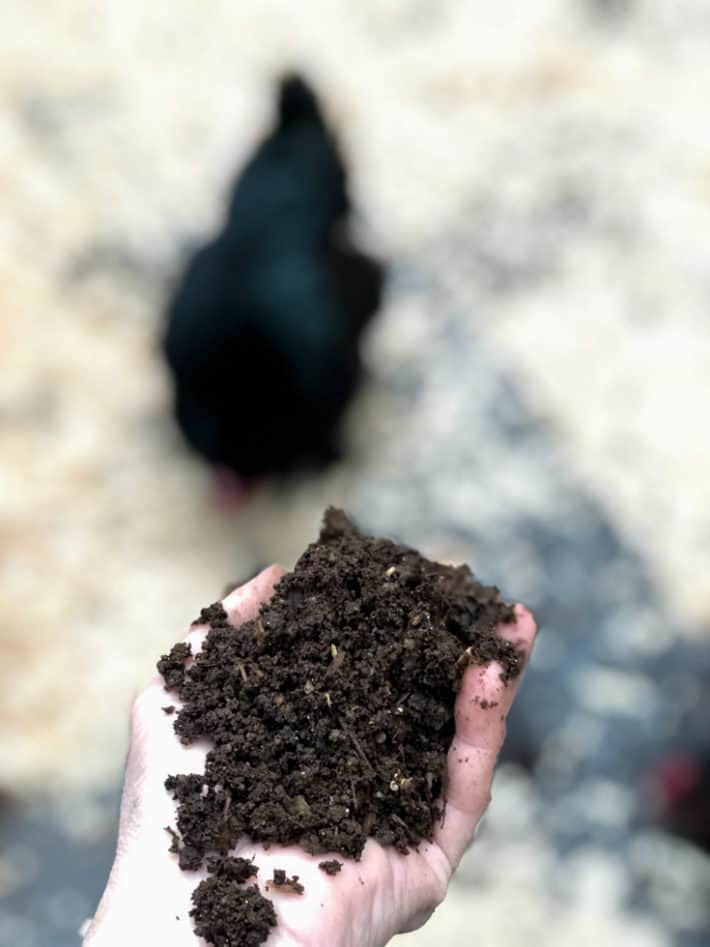
You've thrown stuff in a pile and it seems to have become something other than what it was originally. So is it compost? Is it "done"? If it looks like soil and smells like soil, chances are your compost is ready to use.
If you don't know how to make compost or you're intimidated by it you can learn how to compost here. I use a hot composting method, which ... well you can learn about what this is if you click that link.
Composting isn't hard.
But other than looking at it and guessing, there's an actual cut and dry method to test if your compost is really compost.
How to Test If Your Compost is Ready to Use.
There are a few clues as to when your compost is ready to be used in the garden. It has a sweet sort of smell to it like black earth and it's crumbly.
But sometimes it doesn't look like that. Sometimes after months it still looks a bit rough with pieces of identifiable stuff like sticks or straw.
If it SMELLS like soil though, your compost is probably ready to use no matter how lumpy.
One year I was at my deepest depths of compost despair because my compost smelled but didn't look like soil. It was enraging. I considering giving up composting and all this gardening stuff to moving to a shiny skyscraper with a quick witted doorman named Charles.
But then I got some secret information.
I went to a talk from a local organic CSA farmer. These people are SERIOUSLY into the science of agriculture. Plan B Organics is run by 2 brothers and a wife who not only farm but have travelled to Mexico to learn about generations old organic farming practices.
During this talk I grabbed onto one tiny piece of information and locked it into my brain. (the stuff about calcium absorption, hormones, plant DNA and such tried really hard to make it into my brain but ricocheted right off unfortunately)
The tiny piece of invaluable information?
Plant some radishes in it.
- The seeds should germinate in a few days. If they don't the compost isn't ready.
- If the seed germinates, but the leaves are yellow, the compost isn't ready.
- If the seed germinates, and the leaves are a nice green the compost IS ready.
Would you like to save this stuff?
Of course I experimented with this to test it out.
This was the compost in question. It heated up and decomposed like crazy for a few weeks then it just clunked out. It could have needed more nitrogen, more oxygen, more water or more carbons. Or ... it could have been be ready. I just didn't know.
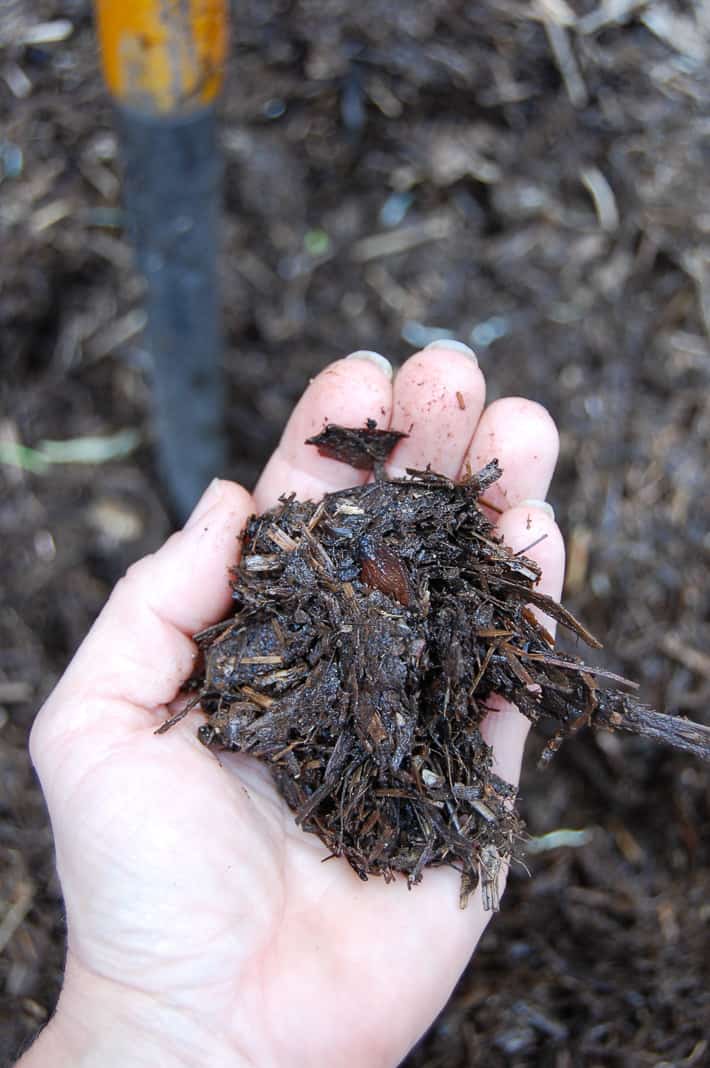
It was nice and dark but you can see that everything hadn't completely broken down. Before I added a compost accelerator to it I wanted to see if this compost, even though not completely broken down was ready to use.
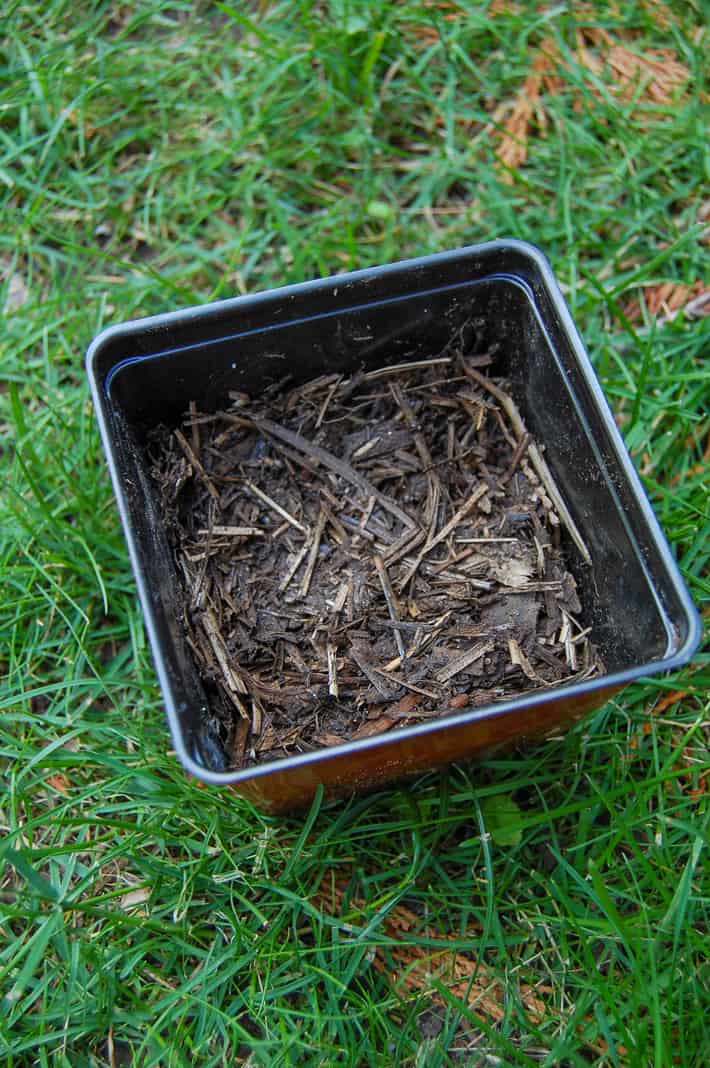
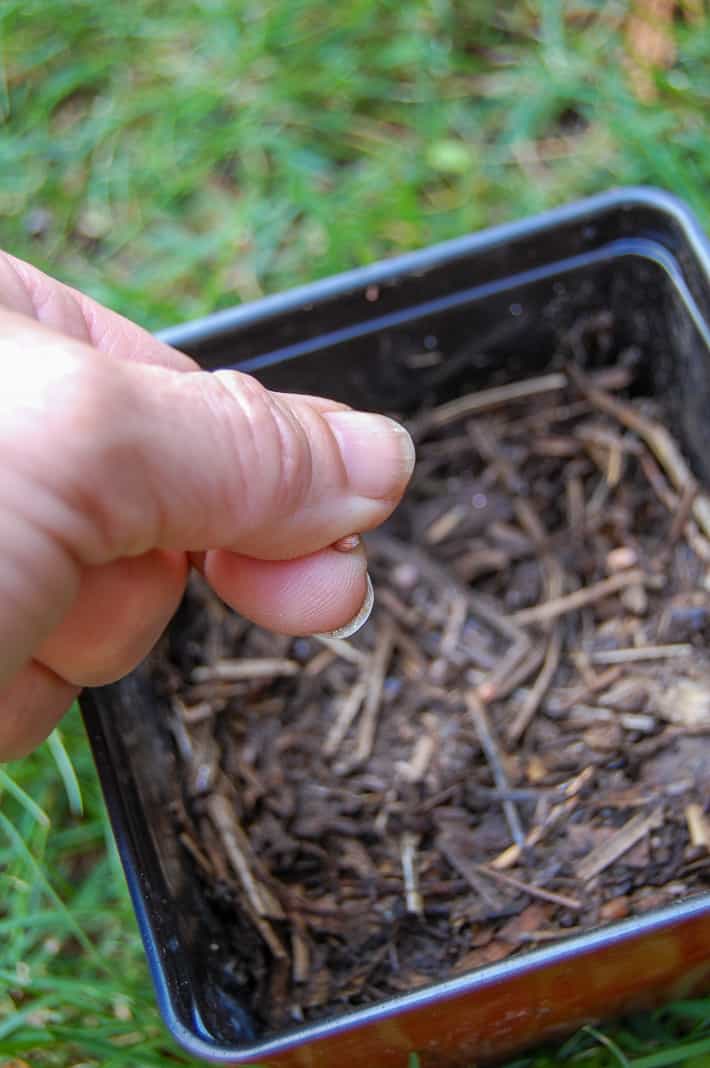
So the experiment commenced with me throwing some compost in a pot, sticking a few radish seeds in it and seeing if they grew. Of course I didn't use my special multicoloured radish seeds - I'm adventurous, but I'm not an idiot - I used my regular, every day Raxe radish seeds. (which are BIG red radishes)
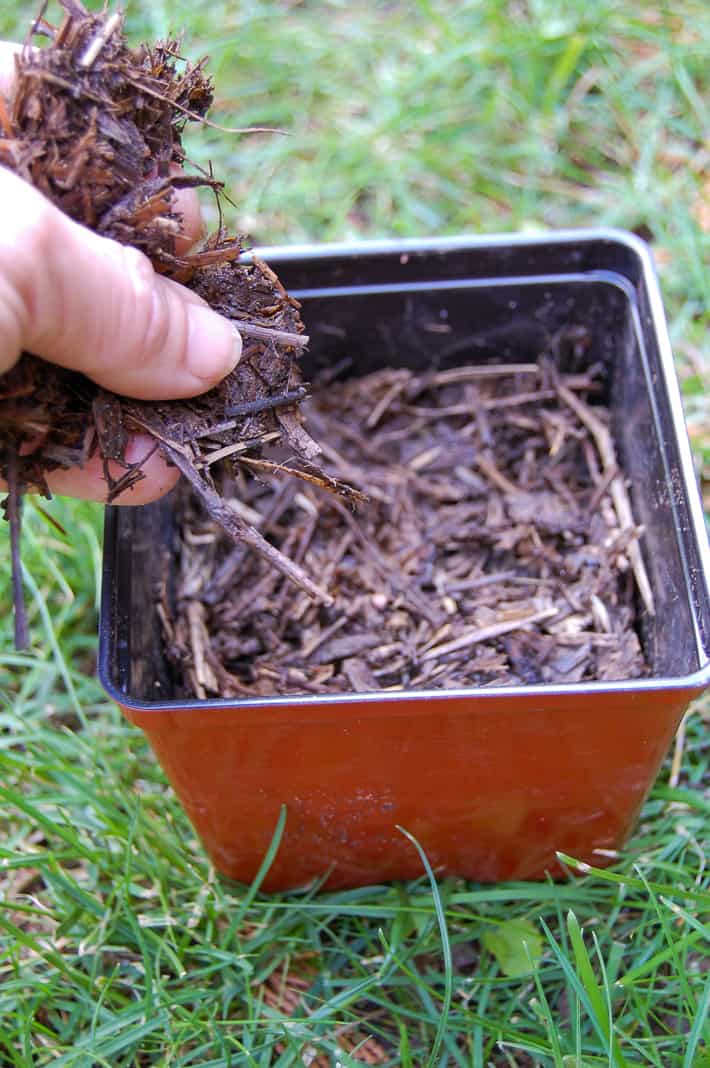
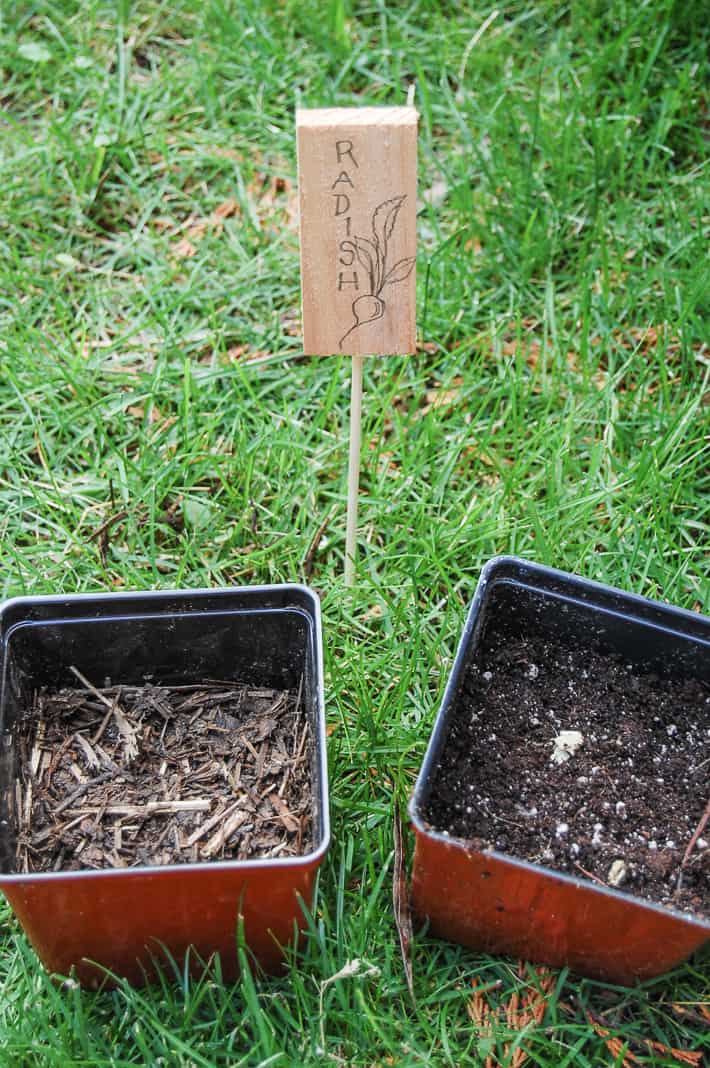
After you get a few seeds in there, cover them up with a thin layer of compost. (You can even just throw the radish seeds in your compost pile if you don't plan on turning it. No pot needed.)
To round out the great radish experiment I also did a test group in a pot of regular potting mix. And then I sat. And I waited.
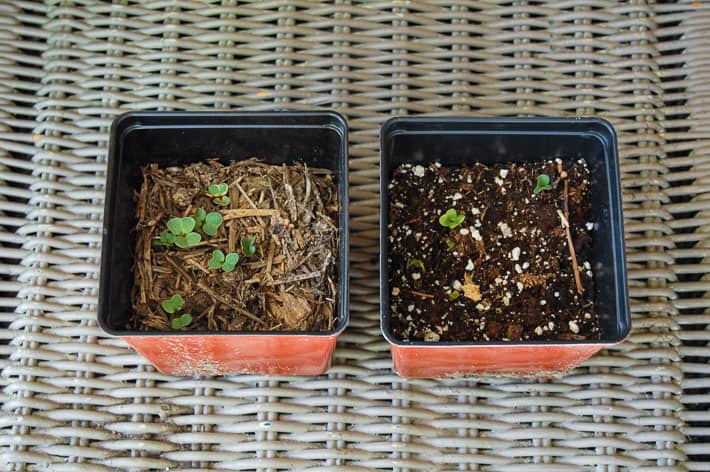
I suspected the seeds in potting soil were going to win this fight. I was wrong.
The radish seeds in the questionable looking compost (on the left) sprouted several dark green radish leaves. The potting soil, on the other hand sent up one germination with a couple of more on the way. Plus the leaves on the one germinated radish seed had a yellow cast to them.
The moral of this story? Even if your compost doesn't look ideal, it could be perfectly useable and ready to go.
Even though my compost was full of sticks and straw and chicken poop, it was the store bought potting soil that turned out to be crappy.
There you have it. The best way to check if your compost is ready. All you need is radish seed and a few days.
Now if you want an actual radish, that's going to take a bit longer.
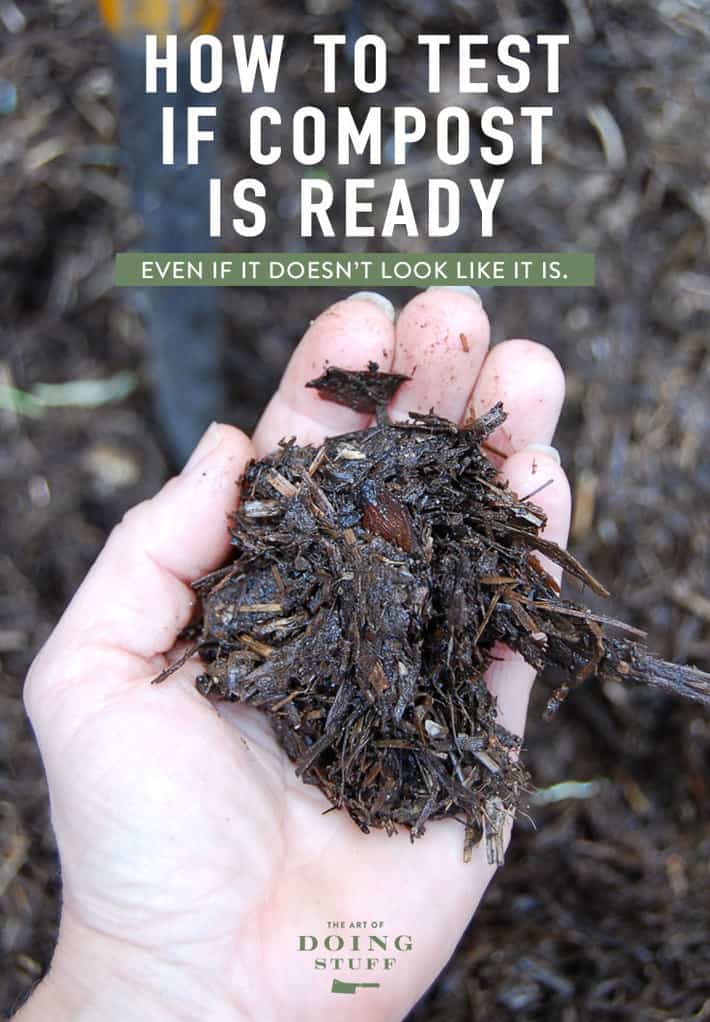


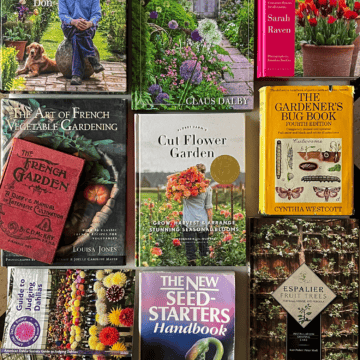
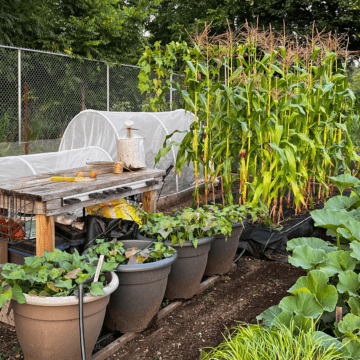
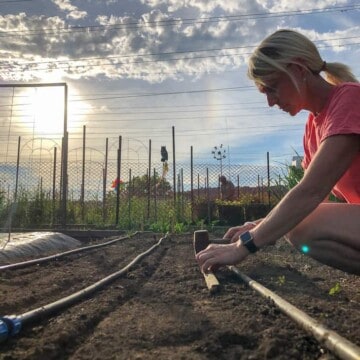
Mary Ann Conner
Must it be a radish seed or will any type of seed do? Thank you from Maine
Karen
I assume a radish is used because a) it sprouts and grows more quickly than anything else and b) it requires a balanced soil as opposed to something else that might like a +/- acidic soil. ~ karen!
Hettie
Such a simple test. Thanks, Karen!
Karen
It really is an easy, foolproof test. ~ karen!
Mary W
Genius idea - will do before lunch. Thank you once again and again and so on.
J Miller
Years ago when I was actively composting I didn’t want the sticks and large pieces in my finished product so I made a screed to sift it. I usually did this after the summer after it had really decomposed. I stored it in large plastic containers to use in the spring or as needed. I would throw the large pieces back into another compost pile until the next year.
Karen
Hi Joan. I made a sifter as well out of hardware cloth and 1x1s and now I can never be bothered to use it.😆 I just grab anything really big and chuck it back into the pile too. ~ karen!
Terry Rutherford
Genius tip. I feel we should all split the cost of your compost talk! Are your asparagus up yet? We had a huge feast last night, an all asparagus dinner(Instant Pot, 1-2 minutes, I know you hate it but works for us as we like well cooked veggies.) thanks as ever!
Karen
Hi Terry. My asparagus is just up! I checked about a week ago and there were 2 stalks which I accidentally broke and ate while sitting in the dirt. ~ karen!
TucsonPatty
I’m not there yet, but I just began a second bucket for composting, figuring simply always adding to the first bucket was going to end with it never going to compost to completion. So - I now have 2 buckets with many holes drilled through the bottom and side, then buried about 3/4 into a nice ex-flowerbed. I have very few vegetable scraps, but I’m trying. I’ll have to purchase a packet of radish seeds to try this out! Sticks, leaves, shredded office paper and scraps. Am I leaving anything out? Stir once in a while. Many gnats/fruit flies. What to do about those? Thanks as always for the info, Karen.
Karen
Hi Patty! I think the only thing you can do about gnats and fruit flies is to whack the bucket so they all fly out and then cover the bucket with something like cheesecloth or a flour sack tea towel. Although, maybe the gnats and fruit flies are doing good work in there! ~ karen
Randy P
I have no doubt the radish seed trick/tip will be a great assist for your fellow composters. And I have added another nugget of wisdom to my nearly non-existent gardening knowledge base.
tuffy
this is so awesome--i have the same damn question every single year when we do 11 piles of Berkeley composting all at once (using our sheep manure after cleaning out the barn). it always looks a bit like yours above! Well i'm not going to worry about it anymore, i'll just buy some radish seeds LOL--thanks!! best tip ever!
Karen
You're welcome! It's SUCH a good tip and something no one seems to address ever! ~ karen
Barbara Travis
Hi Karen,
Do you compost your rhubarb leaves?
Thank you
Cheryl Fencl
Does anyone have any ideas how to keep mice/rats out of their compost? (We have roof rats because we have a lot of citrus trees.). We have compost containers, 4 of them because we have so much “stuff” but we can’t keep the rats out. The containers have small holes butt they can make it through a dime size hole. We even covered the holes with stucco mesh which is really sharp and they ate through that! Help!
Ellen L Caldaro
Hmm, I wonder what you are putting in your compost? I generally save my food scraps (no meat, nothing with oils, no citrus, no onions, no garlic, no banana peals) in a bag in the freezer (so they don't start to rot/smell), then add them to my bin on the weekend with yard scraps (twigs, leaves, grass clippings, etc). I layer the food scraps on first, then cover with yard waste, then water the pile and cover it. I think covering the food scraps keeps them from smelling and attracting critters. I will even use shredded paper from my office shredder in place of yard waste to cover the food scraps. Works great!
Katt Hunsaker
Speaking of poo, what do you do with all your eggs. In the pandemic we were eating an obscene amount of soufflé, but now that one must wear pants we have run out of ideas.
Radishes going into the heap today, thanks for the tip. Oh, and do you minimally add your compost to your garden or do you get wild with it?
Ellen L Caldaro
I started composting (and gardening) when the pandemic hit. I go HOG WILD with my compost. When a batch is ready I put the whole thing (about the size of a garbage can) in my raised bed, before I put my new plants for the season in. It works great!
Christy Jay
Don’t trust Charles.
Barb
Our field mice that tunnel around in the compost and the giant crows (ravens) that dive bomb them and poke for worms do an excellent job aerating our compost. Hugely entertaining. There’s also the carnival game of not shish kebab’ng mice when turning the pile. You and Rodrigo should come by.
Maria Cabangon
You are a hella of a funny lady. LOVE IT. Thanks for this useful information. It is VERY helpful.
Love you comments. Please don't ditch the chicken and move anywhere. THat would definitely be a sad thing. But I also know changes are necessary sometimes.
Bless you.
Maria